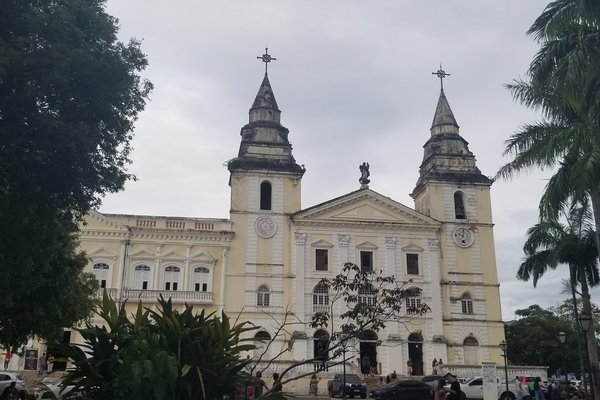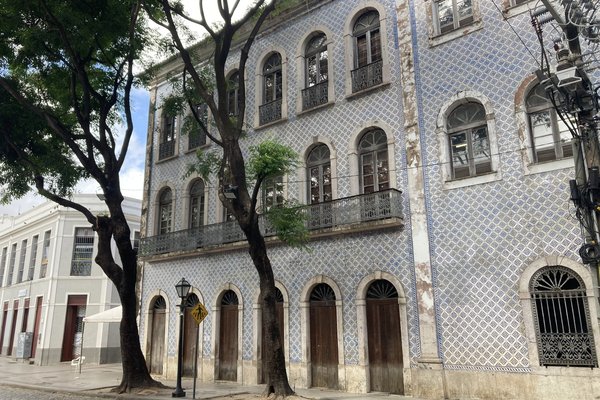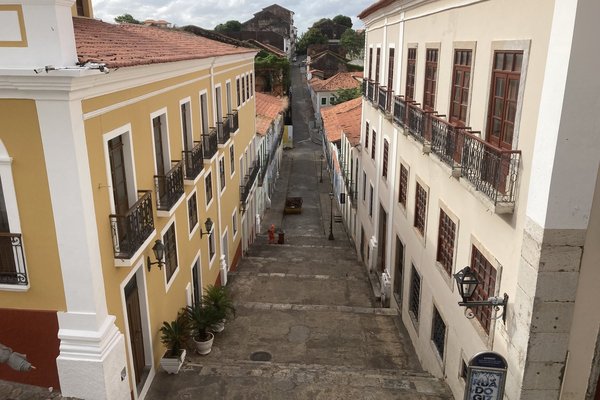Brazil
São Luis
The Historic Centre of São Luis is an outstanding example of colonial Portuguese architecture in Latin America.
After a short period of occupation by the French, the Portuguese developed this city according to an urban plan dating from 1615. The city was further expanded in the 18th, 19th and 20th centuries, using an architecture that fitted the local climatic conditions. The centre includes public buildings, sumptuous manor houses, marble multi-storey houses and small houses decorated with azulejos.
Community Perspective: São Luis is the state capital of Maranhão, and is located quite far from other places of interest in the far north of Brazil (Lençóis Maranhenses National Park is the exception). Explore the city center’s streets with its many monuments on foot and keep an eye out for Bumba Meu Boi groups performing in the evenings.
Site Info
Official Information
- Full Name
- Historic Centre of São Luis (ID: 821)
- Country
- Brazil
- Status
-
Inscribed 1997
Site history
History of São Luis
- 1997: Inscribed
- Inscribed
- Type
- Cultural
- Criteria
- iii
- iv
- v
Links
- UNESCO
- whc.unesco.org
- Official
-
- saoluis.ma.gov.br — City website Sao Luis
All Links
UNESCO.org
- whc.unesco.org — whc.unesco.org/
Official Website
- saoluis.ma.gov.br — City website Sao Luis
Community Information
- Community Category
- Urban landscape: Colonial
Travel Information
Recent Connections
-
Perfect Inscriptions
1997 -
UNESCO Intangible Cultural Heritage Lists
Cultural Complex of Bumba-meu-boi from … -
Bazaars and Market Halls
Mercado das Tulhas (19th century)See pt…
Connections of São Luis
- Geography
-
-
Atlantic Ocean
"The city is located on Upaon-açu Island (Big Island, in Tupi Language) or Ilha de São Luís (Saint Louis' Island), in the Baía de São Marcos (Saint Mark's Bay), an extension of the Atlantic Ocean which forms the estuary of Pindaré, Mearim, Itapecuru and other rivers." (wiki)
-
- Trivia
-
-
Built or owned by Portuguese
The Historic Centre of Sao Luis is an outstanding example of a Portuguese colonial town; The Portuguese Jerónomo de Albuquerque drove them [the French] out in 1615 (AB ev) -
Built or owned by French
In 1612 the French built a fort on the site of a "large village of the Tupinamba tribe" (Wiki) as part of the creation of the intended colony of France équinoxiale. Less than 4 years later it was taken by the Portuguese. -
Built or owned by Dutch
The Dutch captured it from Portugal in 1641 and stayed until 1645. -
Dubbed as another WHS
"Brazilian Athens" (apparently due to its due to its many poets and writers, which would link it to the Acropolis)
-
- Architecture
-
-
Glazed tiles
Azulejos -
Gothic
Remédios Church (1719) -
Neoclassical architecture
"a number of public buildings from the 19th and early 20th centuries, which are largely in neoclassical style" (AB ev)
-
- World Heritage Process
-
-
Perfect Inscriptions
1997
-
- Religion and Belief
-
-
Cathedrals
Cat Met Nossa Senorha da Vitoria
-
- Human Activity
-
-
Slavery
17C town economy based on the introduction of the "trade in black slaves" (AB ev)
-
- Constructions
-
-
Theatres and Opera Houses
Arthur Azevedo Theatre -
Bazaars and Market Halls
Mercado das Tulhas (19th century)See pt.wikipedia.org
-
- WHS on Other Lists
-
-
UNESCO Intangible Cultural Heritage Lists
Cultural Complex of Bumba-meu-boi from Maranhão (2019)See ich.unesco.org
-
- Timeline
-
-
Built in the 17th century
French colonization and street pattern
-
- WHS Names
-
-
Named after individual people
After Saint Louis IX of France as a compliment to King Louis XIII
-
News
No news.
Recent Visitors
Visitors of São Luis
- Adrian Turtschi
- Alejandro Lau
- Alexander Lehmann
- Alex Marcean
- Atila Ege
- Bill Maurmann
- Cirene Moraes
- Daniela Hohmann
- Doubanjiang
- edstar500
- Els Slots
- Erfe91
- Erik Jelinek
- Eva Kisgyorgy
- Fan Yibo
- Felicité
- Harry Mitsidis
- Iain Jackson
- Jarek Pokrzywnicki
- Jens
- João Aender
- Jon Opol
- Liamps91
- Loic Pedras
- Luis Filipe Gaspar
- Michael Ayers
- Michael Novins
- Monica Tasciotti
- Nihal Ege
- Patrik
- Rafabram
- Reza
- Roger Ourset
- Roman Bruehwiler
- RYU
- sibariam
- Thomas Buechler
- Thomas van der Walt
- Zoë Sheng
Community Reviews
Show full reviews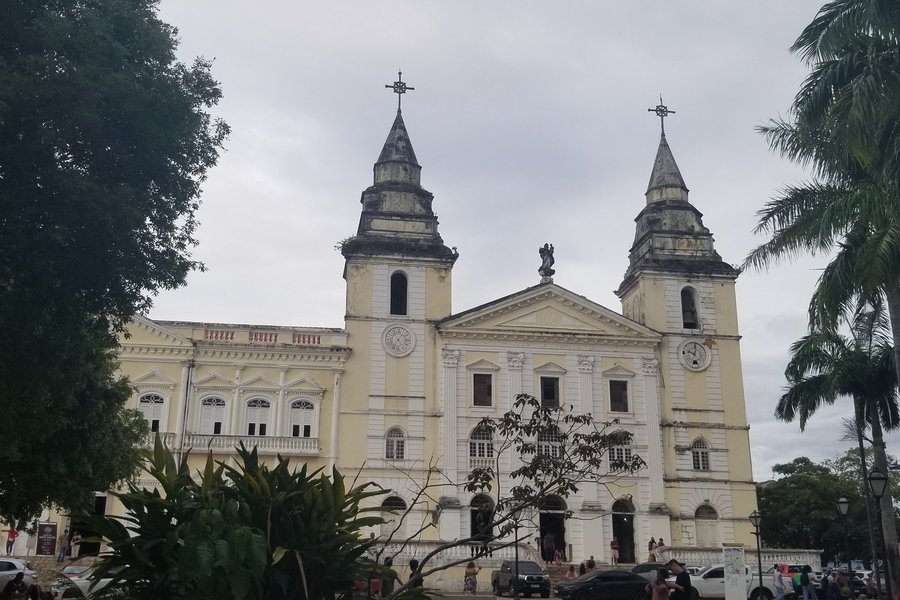
After returning from Lençóis Maranhenses National Park it's nice to be back in the city, and the area around the São Luis airport isn't exactly what you want either. I got a driver to take me to the historic center which is still half an hour away but it was totally worth it. You get "old town" cobble streets, old buildings, it's basically like going to an old French city. It's also amazing enough that you get the French remains in Brazil seeing that most was Portuguese inheritance.
I didn't spend much time here. From the palace dropoff it was 1-2 hour max to see everything. There is a map to see where to go. The area is quite small and none of the buildings but churches were open. I was also not that interested in the churches if you want to know. The streets were colorful, quite clean, VERY smelly for some reason (there was also a line of thunderboxes...) but I was happy to be in the area. I had dinner here to enjoy the scenery and surroundings, atmosphere. You get the usual avoidable issue like penny pinchers and overpriced drink stalls but no biggie. I can't give you a suggestion of where to start but at some point you'll hit the park in the center which is when you want to stick west and also there is a very cemented park at the west side. Because everything here is still used for courthouse, presidential palace (ok local …
Keep reading 0 comments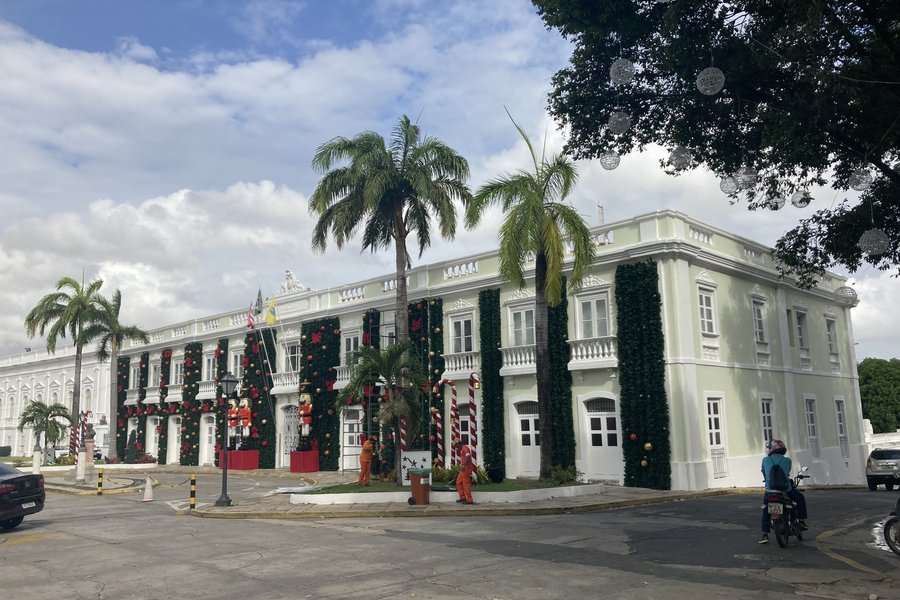
No community member so far has succeeded in ‘completing’ Brazil. This is surprising, as its list does not feature any particularly hard-to-reach sites. The main ‘issue’ is that there are many of them and all spread out across this vast country: it takes a lot of stamina and certainly cannot be done in one trip. The state capital of Maranhão, São Luis, is one often lacking. It lies isolated in the far north, but with the upcoming nomination of Lençóis Maranhenses National Park some 250km away, it surely will start to attract more people.
The town shows its WH status proudly. There are already signs with the familiar logo and the subtitle ‘City of Tiles’ upon entering the city border. In the historical city center, they have maps indicating the sights and the delimitations of the core zone. The maps show no less than 73 monuments and 29 squares, and that turned out not to be an exaggeration.
I had put together my own City Walk and that brought me to the following places:
The Upper town (on the site of the original French fort) holds all the important public buildings, including the City Hall and the seat of the State government. They are built in a neoclassical style and in good condition. The supersized Christmas decorations almost take over the scene at the moment.
I had started my walk at 8 a.m., the time that all the homeless started waking up. There were lots of street cleaners and …
Keep reading 1 comment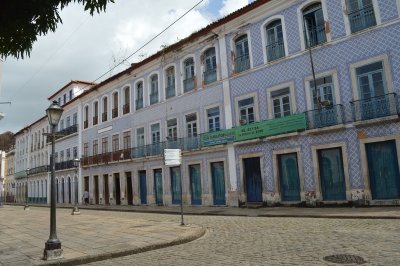
In August 2018, I spent a couple of days in São Luís, the capital of the Brazilian state of Maranhão. São Luis was settled by France in the early 17th century, the only city founded by that country in Brazil, and occupied briefly by the Dutch before being conquered by the Portuguese in the middle of the 17th-century. The late 17th-century core of São Luís, where many of the buildings are covered with traditional azulejos tilework, is the best preserved Portuguese colonial city in Latin America, so no surprise it was added to the list of World Heritage Sites.
Keep reading 0 comments
I have made three trips to Sao Luis and I have been able to explore the Historic Centre. The area is like a living time capsule in that the hand-painted tile and cobblestone streets have withstood the test of time. Perhaps best of all is the area continues to be full of life. It incorporates shops, restaurants, offices and living quarters. This affords a chance to fully engage the unique qualities of the area.
Keep reading 0 comments
I was in São Luís, capital of the State of Maranhão, for a weekend last August. Most tourists don't spend much time in São Luís, rather go as soon as possible to the nearby Lençóis Maranhenses, a paradisiac complex of fresh water lagoons formed on the dunes.
Anyway, São Luís was the only city in Brazil founded by the French (hence named after the French King St.Louis IX), but very little of French heritage is left.
The main attractions are the Government Palace, some historic museums and the "tiled buildings", designed with the purpose of isolating their interior from the intense heat (the city is close to the Equator).
From all the 16 WHS I already visited in Brazil, this was the one I least wanted to go - it is far from São Paulo (a 3,5 hour-flight)and most buildings lack proper maintainance -, but I ended up enjoying. In any case, it is usually interesting to go to the least visited and off-the-beaten-track WHS.
Keep reading 0 comments
It's such a wonderful Island...I live there, but right now I'm an exchange student here in USA.
There are attractions for all kinds of tastes. Great beaches. Good to surf, and play a lot of summer sports. Also one of the most famous place to sendboard. Very fun. It's very close to snowboard.
The nights are perfect!!! A lot of night clubs, Bars, show houses, movies, theatres.
Sao luis is also a historical city. Downtown you can see old French and Portuguese buildings, and all kind of artcraft.
Keep reading 0 comments
